Caroline Spelman: Dry winter may mean standpipes in 2013
- Published
- comments
Standpipes could be needed in the streets next year if England endures another dry winter, the environment secretary has suggested.
Caroline Spelman said the UK would have to look at other ways to supply water if shortages continued.
Large parts of England are in drought, despite recent wet weather.
Mrs Spelman said: "Whereas it's most unlikely we'd have standpipes this year, if we have another dry winter that becomes more likely."
'Very bad place'
Adrian McDonald, a professor of environmental management at the University of Leeds, said it was hard to predict what would happen if the UK had a third dry winter but he agreed standpipes could be used.
He said: "It's difficult to say but we'd be in a very bad place.
"You would be expecting measures to try and conserve water that would be quite dramatic.
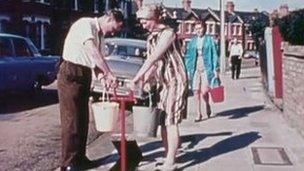
Standpipes have not been ruled out as a possibility next year
"There would be standpipes in the streets, people's water supply would be cut off and they'd have to take buckets and containers down to those standpipes."
Standpipes were used in 1976 when a drought and heatwave in the UK led to a hosepipe ban and other measures being introduced in an effort to conserve water.
The South West, Midlands, East Anglia, the South East, South and East Yorkshire remain in drought.
Meanwhile, temporary-use bans for customers of seven water companies remain in the South East and East of England.
A spokesman for the Environment Agency (EA) said as a result of recent rain, soil moisture deficits had decreased in all regions, with river flows normal for the time of year at over half their indicator sites.
But groundwater levels remain low and, the spokesman said, as spring becomes summer, most of the rain that falls either evaporates as temperatures rise or is taken up by plants as they grow.
.gif)
Desalination option
Mrs Spelman told the BBC's Inside Out, councils would have to consider whether new developments can be supplied with water when making planning decisions.
She said: "I think we need to look at a whole range of ways in which we can help to reduce demand for water and become more water efficient.
"One of the questions which has to be in councillors minds is 'Do we have enough water to supply this new development?'"
Trevor Bishop, head of water resources at the EA, is trying to find a way to reduce how much water is used in the UK.
One option is desalinisation - removing the salt from sea water to produce fresh water.
He said: "We've already got one big desalination plant near London and that's going to be really important for safeguarding supplies for London.
"I think the likelihood of seeing more desalination plants over the next 10 or 20 years in England is quite high - but you don't want to rely on desalination, it's very expensive, it produces a lot of carbon so that's not good for the environment."
He said another option was water companies moving water around the country to where it is needed.
How the drought spread
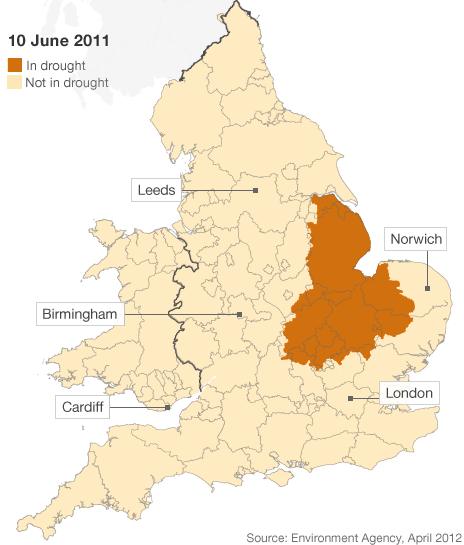
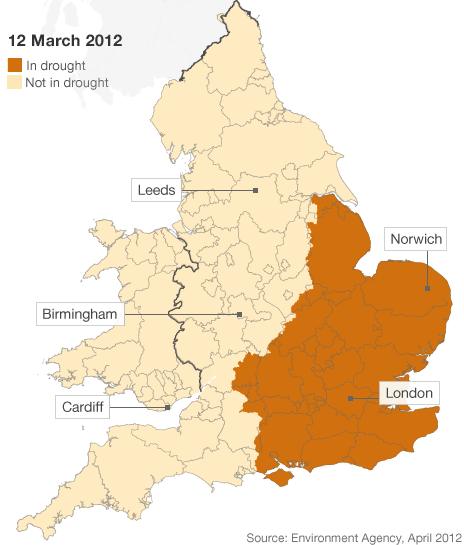
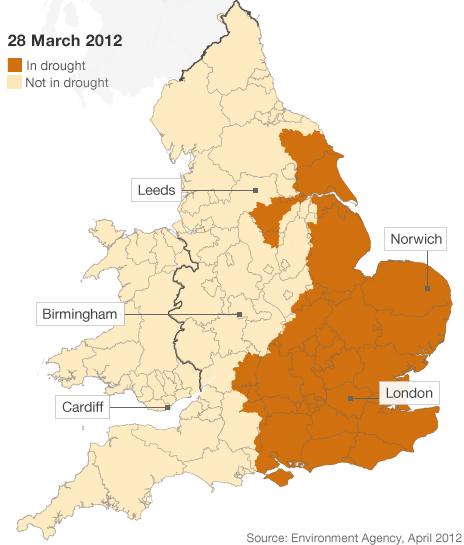
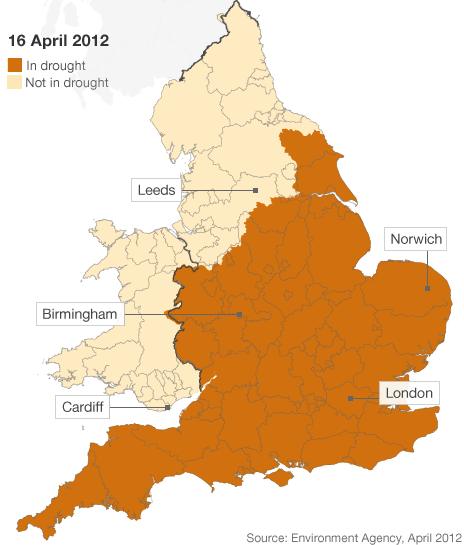
<link> <caption>Inside Out Special: Drought 2012</caption> <altText>BBC Inside Out Special: Drought 2012</altText> <url href="http://www.bbc.co.uk/insideout/" platform="highweb"/> </link> is broadcast at 19:30 BST on BBC One England and for seven days thereafter on the iPlayer.
- Published1 May 2012
- Published1 May 2012
- Published28 April 2012
- Published16 April 2012
- Published16 April 2012
- Published16 April 2012
- Published12 March 2012
- Published20 February 2012
- Published23 November 2011